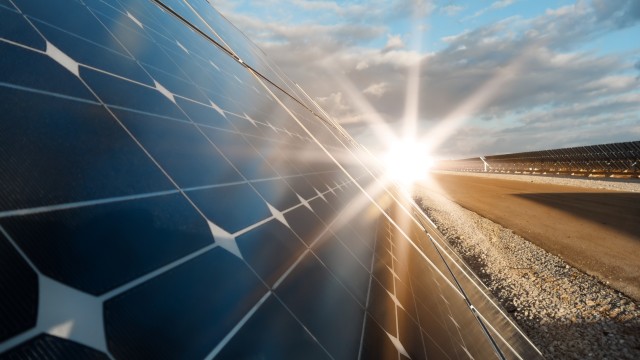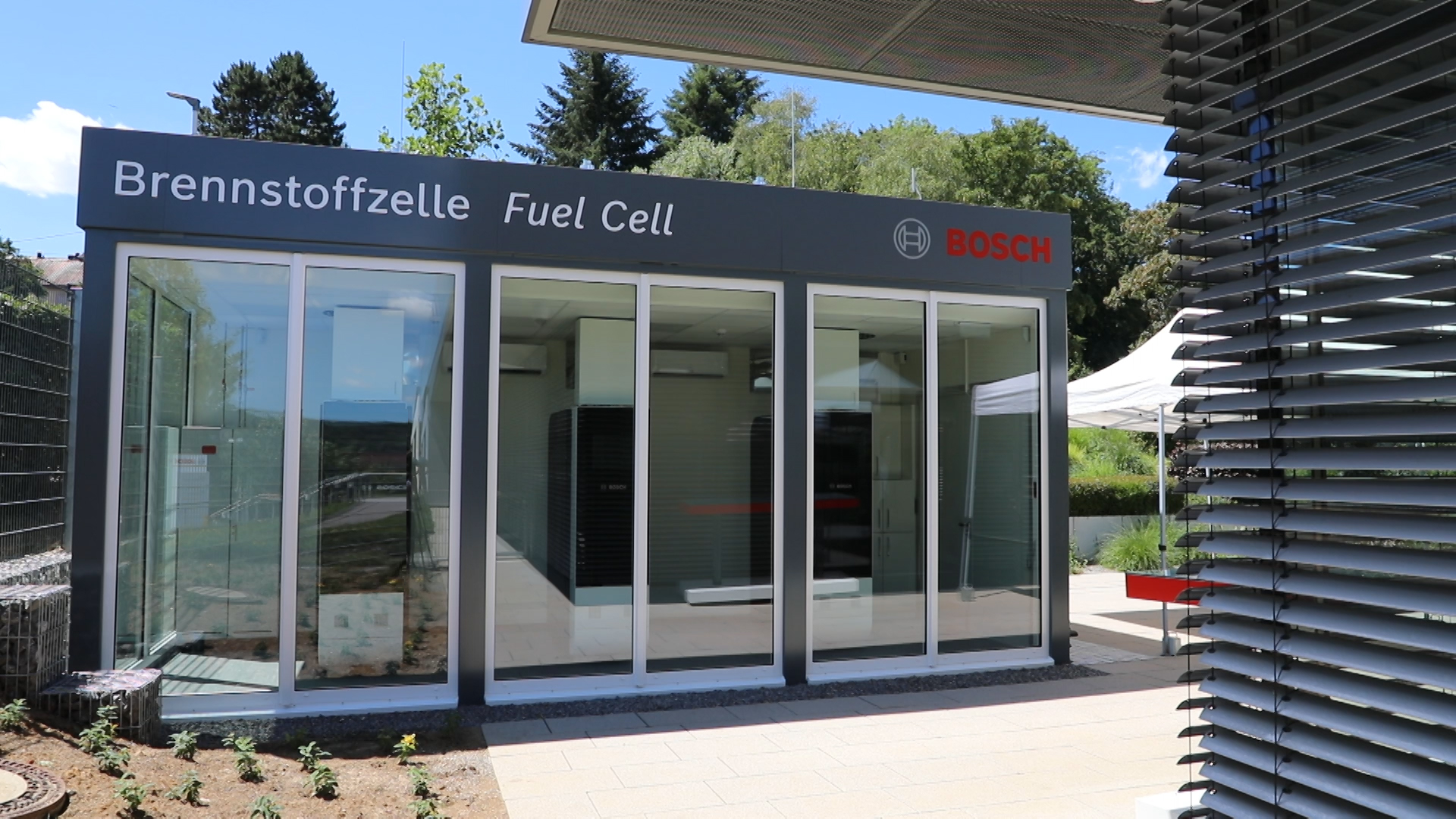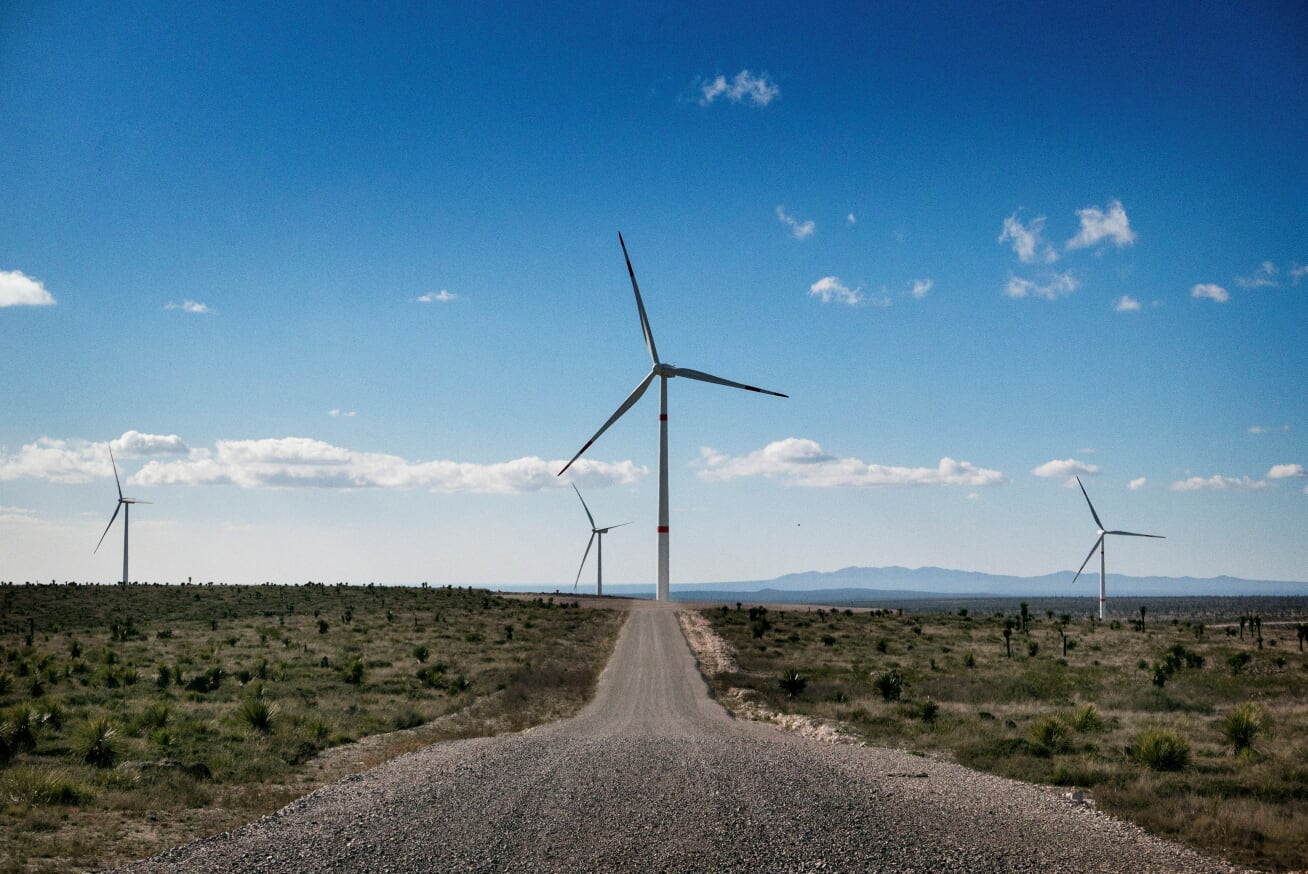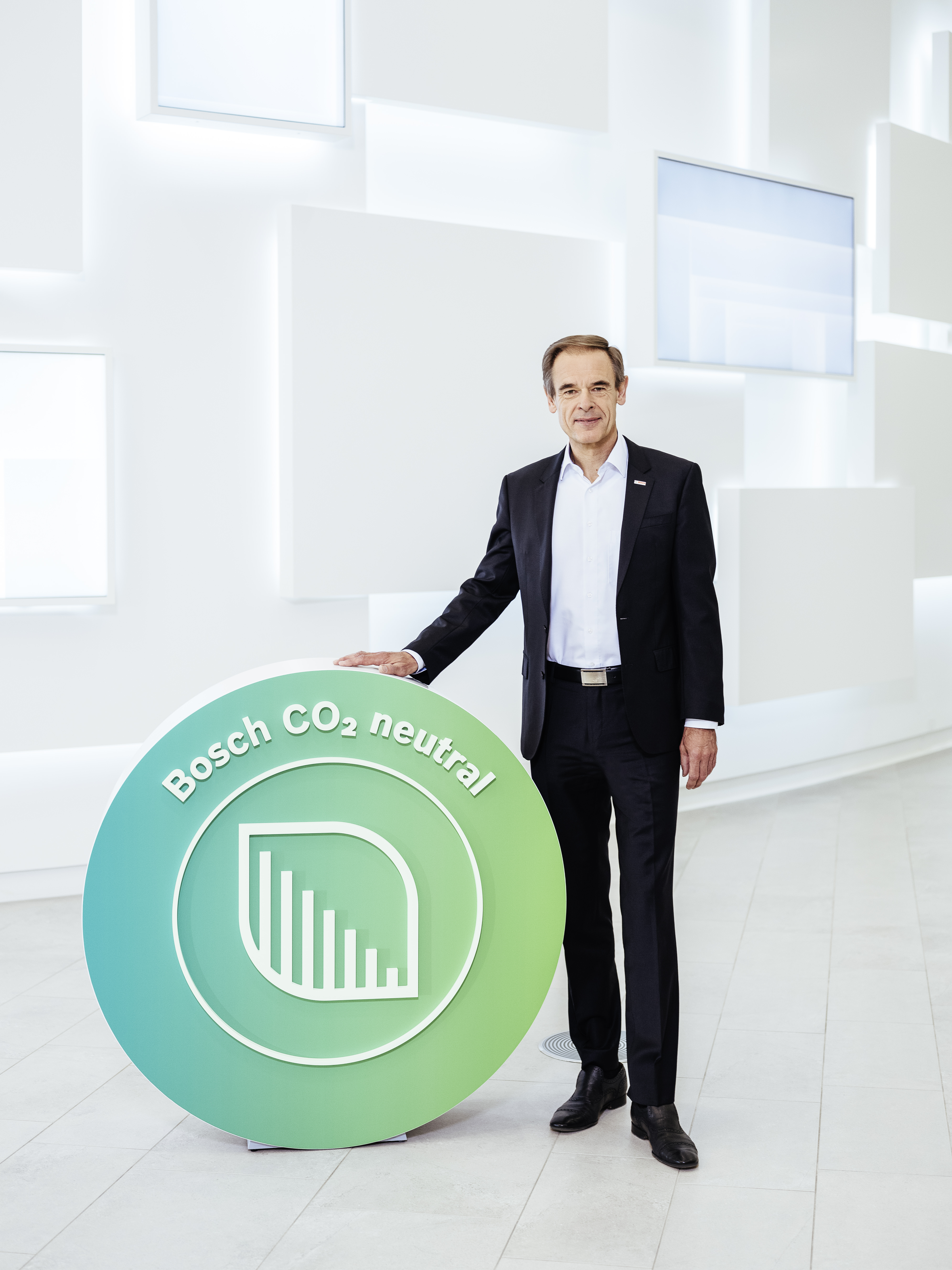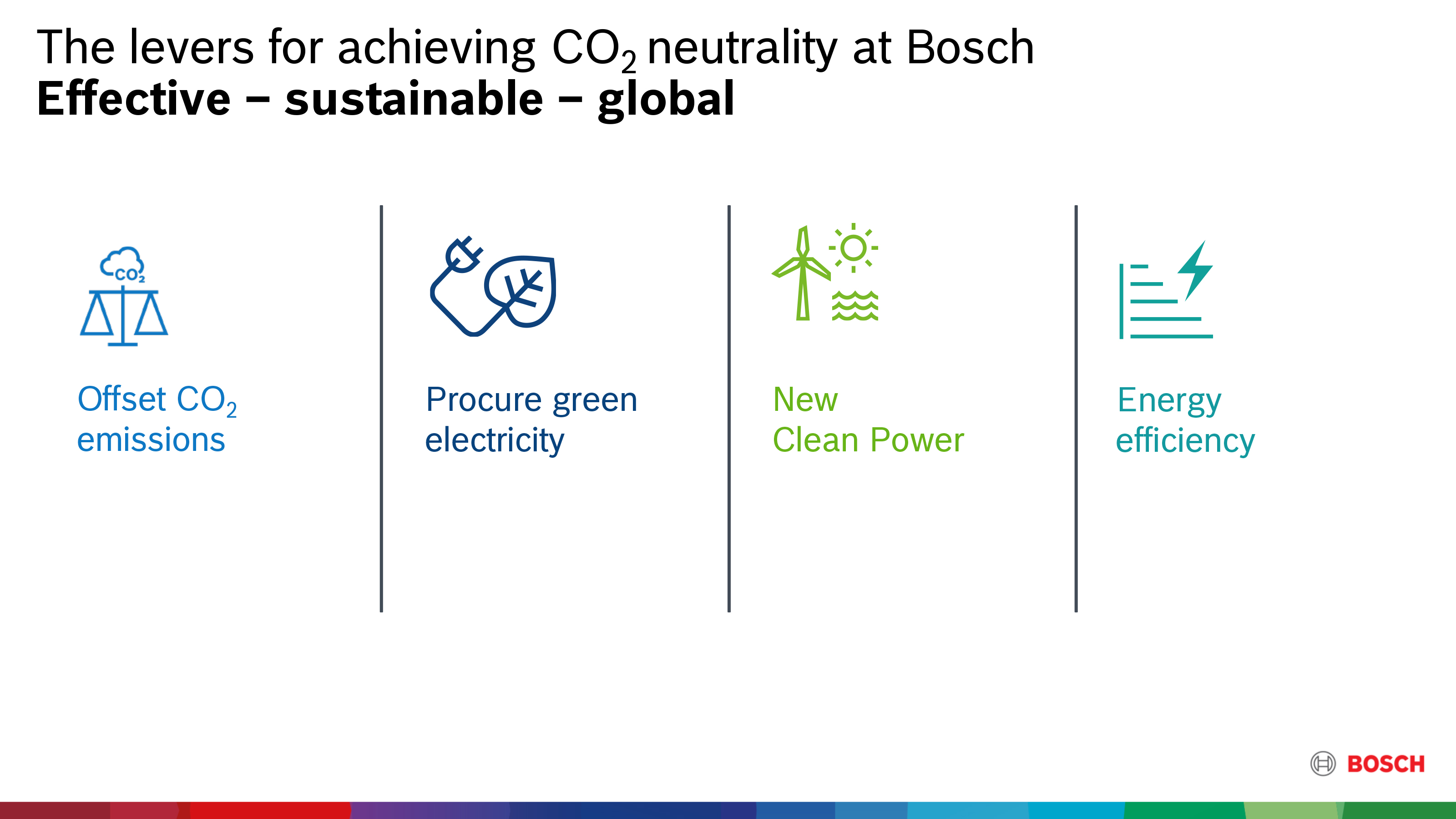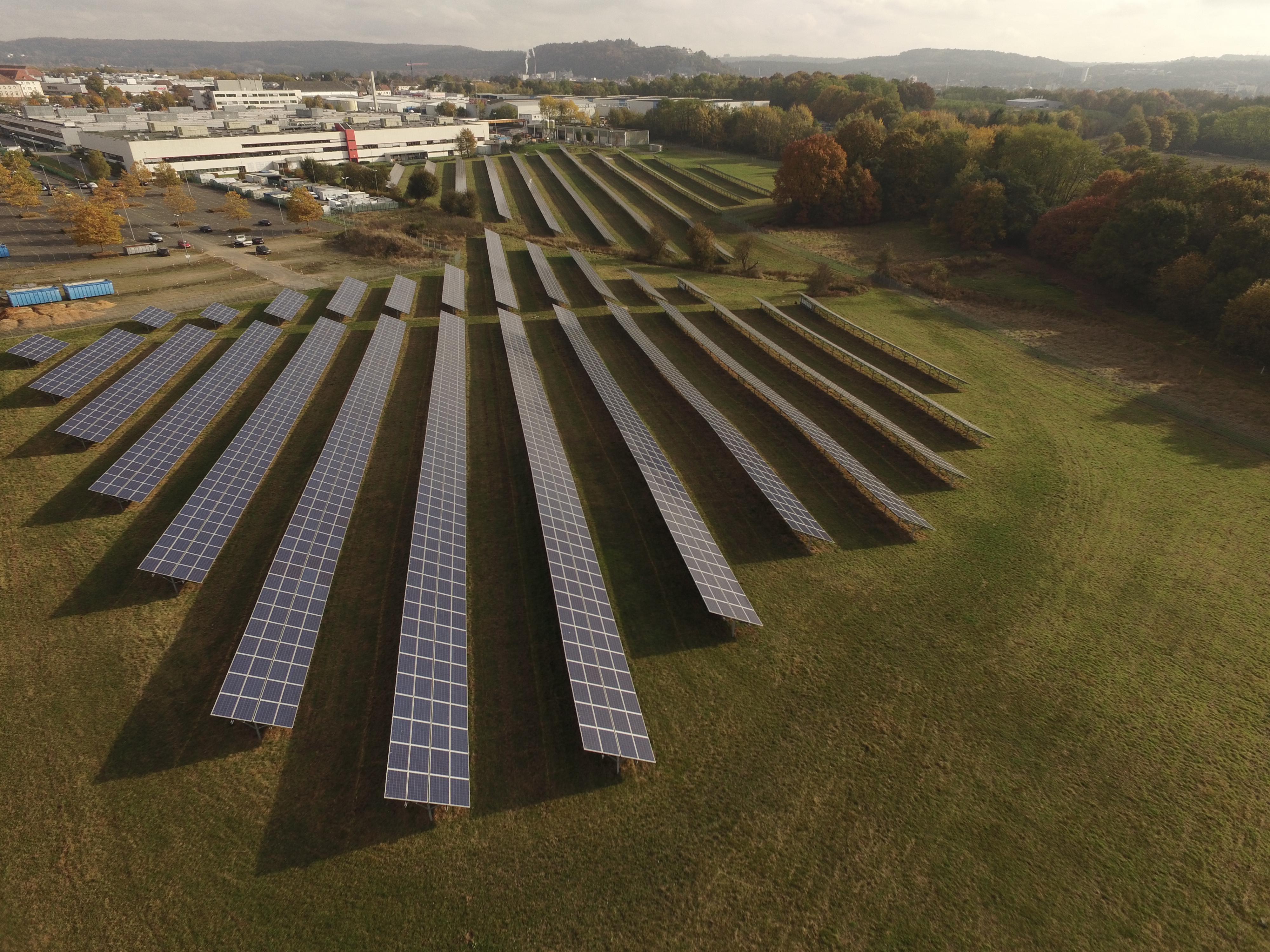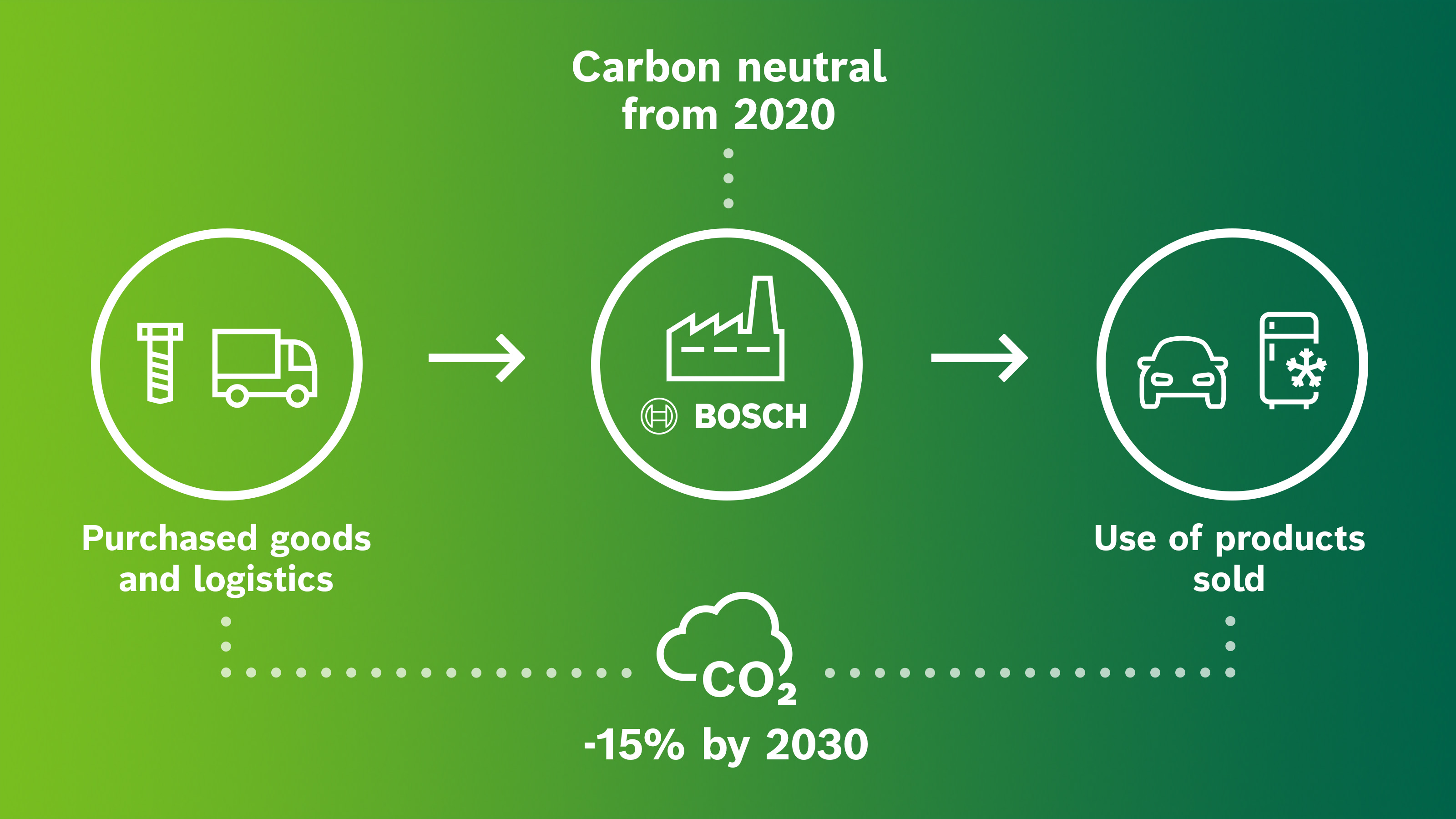Stuttgart, Germany – On the path to climate neutrality, renewables represent a key area where companies can make major adjustments. Bosch is expanding in-house power generation at its locations and is set to be a long-term customer of renewable electricity from newly constructed wind and solar parks. To this end, the supplier of technology and services has signed three exclusive long-term purchasing agreements for PV electricity with the providers RWE, Statkraft, and Vattenfall. Despite the challenging situation due to the current coronavirus pandemic, Bosch is pressing ahead with its highly ambitious climate action plans: “Climate change isn’t taking a break, so neither are we. By the end of the year, we will achieve our ambitious goal of no longer leaving a carbon footprint,” said Volkmar Denner, the CEO of the Bosch Group. All 400 Bosch locations worldwide will then be climate-neutral. The company’s German sites have been climate-neutral since the end of 2019. “Our efforts for the energy transition will continue after 2020. Investing in renewables is an important testament to this,” Denner added, explaining that while climate action costs money, doing nothing would be more expensive – especially since investing in energy efficiency also leads to cost savings.
About Bosch
The Bosch Group is a leading global supplier of technology and services. It employs roughly 412,000 associates worldwide (as of December 31, 2025). According to preliminary figures, the company generated sales of 91 billion euros in 2025. Its operations are divided into four business sectors: Mobility, Industrial Technology, Consumer Goods, and Energy and Building Technology. With its business activities, the company aims to use technology to help shape universal trends such as automation, electrification, digitalization, connectivity, and an orientation to sustainability. In this context, Bosch’s broad diversification across regions and industries strengthens its innovativeness and robustness. Bosch uses its proven expertise in sensor technology, software, and services to offer customers cross-domain solutions from a single source. It also applies its expertise in connectivity and artificial intelligence in order to develop and manufacture user-friendly, sustainable products. With technology that is “Invented for life,” Bosch wants to help improve quality of life and conserve natural resources. The Bosch Group comprises Robert Bosch GmbH and its roughly 490 subsidiary and regional companies in over 60 countries. Including sales and service partners, Bosch’s global manufacturing, engineering, and sales network covers nearly every country in the world. Bosch’s innovative strength is key to the company’s further development. At 136 locations across the globe, Bosch employs some 82,000 associates in research and development.
The company was set up in Stuttgart in 1886 by Robert Bosch (1861-1942) as “Workshop for Precision Mechanics and Electrical Engineering.” The special ownership structure of Robert Bosch GmbH guarantees the entrepreneurial freedom of the Bosch Group, making it possible for the company to plan over the long term and to undertake significant upfront investments in the safeguarding of its future. Ninety-four percent of the share capital of Robert Bosch GmbH is held by Robert Bosch Stiftung GmbH, a limited liability company with a charitable purpose. The remaining shares are held by Robert Bosch GmbH and by a company owned by the Bosch family. The majority of voting rights are held by Robert Bosch Industrietreuhand KG. It is entrusted with the task of safeguarding the company’s long-term existence and in particular its financial independence – in line with the mission handed down in the will of the company’s founder, Robert Bosch.
Additional information is available online at www.bosch.com, www.bosch-press.com.
